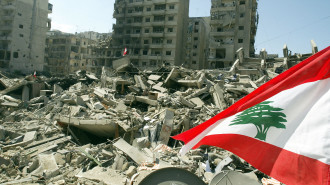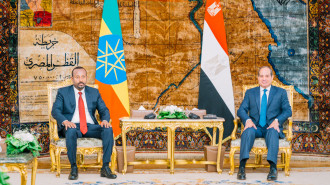Palestinian Land Day resistance comes at critical time
March 30 has been a day of patriotism and resistance for Palestinians worldwide since 1976. But 2018 promises to be a record-breaker.
In 1976, in response to the Israeli government's announcement of a plan to confiscate 21,000 dunums (nearly 5,200 acres) of Palestinian land, a general strike and demonstrations were organised in towns from the Galilee to the Negev.
In the ensuing confrontations with the Israeli army and police, six unarmed Palestinians were killed, about a hundred were wounded and hundreds of others arrested.
Since that year, March 30 has been a day when Palestinians and their supporters have rallied to demonstrate their continuing attachment to their ancestral lands and shared cultural identity. And sometimes, Israel has responded harshly.
During the Second Intifada in 2001, on the 25th anniversary of Land Day, four Palestinians were killed and 36 wounded in Nablus when Israeli forces used live ammunition against protesters. And in Ramallah the same year, one Palestinian was shot dead and 11 others injured when soldiers clashed with 2,000 demonstrators who burned pictures of Ariel Sharon. There were also companion protests in Gaza.
 |
We have to make this march succeed, because if it does, it will be a new stage of Palestinian resistance |  |
Some are wondering if Land Day 2018 will be the same. Palestinians in Gaza are planning a massive demonstration beginning on March 30 and extending through May 15, the anniversary of the Nakba - "the catastrophe", when more than 750,000 people were driven from their homes to make way for the creation of Israel.
The action comes amid heightened tensions after the US government first announced it would recognise Jerusalem as the capital of Israel and move its embassy from Tel Aviv, with an opening planned for May 14, then drastically cut funding for the UN agency that supports Palestinian refugees (UNRWA).
"This year's march may encounter numerous challenges, but we have to keep it non-violent; we must inform participants to stay non-aggressive and not to clash with the Israeli soldiers," says political analyst Ibrahim Habib.
"Israel's fear of this march will force it to escalate and this mustn't stop us from going on, even if they use drones to fire teargas bombs at the protesters, as they've warned us they will do. We have to make this march succeed, because if it does, it will be a new stage of Palestinian resistance."
The centrepiece of the planned activities in Gaza is a "tent city" at several points 700 metres from the Israeli border.
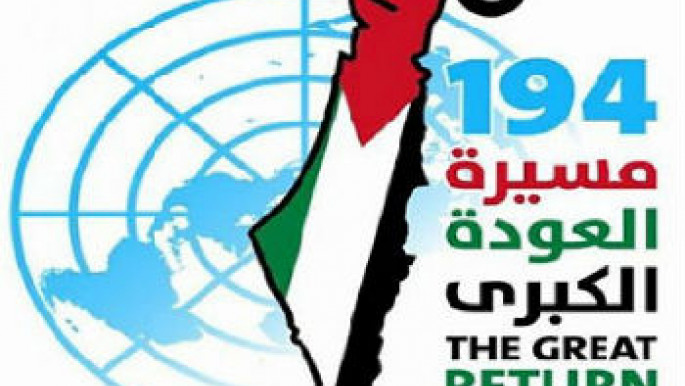 |
|
| Branding for the march focuses on UN Security Council Resolution 194, which established the right of return for Palestinian refugees |
What happens during the first week will determine plans for the following days. What is central, however, is an agreement by all political factions to work together under two flags only - Palestine and the United Nations - says one of the lead youth organisers, Ahmed Abu Rteima.
That is a major accomplishment, given the current antagonism between Fatah and Hamas.
Meanwhile, groups in the West Bank plan to plant olive trees on lands that have been taken by the occupation. Other plans include the creation of murals and sculptures, exhibitions featuring Palestinian heritage products and handicrafts, and digital campaigns on various social networking sites.
"I love my land; I can't forget it," says Mahmoud Khaldi, a 65-year-old farmer in northern Gaza who plans on participating in "the Great Return March". "My land is my soul and you can't leave it behind. Even if they steal it, we will get it back."
Read more: Palestinians pledge to return home with non-violent marches
Ahmed Saleh, a 24-year-old journalist from Gaza who said he planned to join the march, agrees: "The commemoration of the Land Day is not just a narrative of historical events, but a new battle in a war to restore Palestinian rights."
The Palestine Liberation Organisation has issued a call to hold Israel accountable "for crimes against our people, land and rights", and to expand the scope of Israeli products boycotted to break Israel's aggressive expansionist policy and its siege on Gaza.
Fatah spokesman Atef Abu Seif called "the Great Return March" a new step "to assert our right of return to our land, the land of our fathers and grandparents".
 |
They have to know that this shelling will not stop us from preparing for the march |  |
Fawzi Barhoum, spokesperson for the Hamas movement that governs Gaza, launched a large military drill on Sunday, noting that the bombing of the Strip over the weekend demonstrated that Israel was terrified of the impending demonstration.
"But they have to know that this shelling will not stop us from preparing for the march," he said.
According to the Palestinian Central Bureau of Statistics, Israel occupies more than 85 percent of historic Palestine. While Palestinians make up 48 percent of the total population, they are allowed to occupy only 15 percent of the land. At the same time, there are more than 6,000 Palestinians in Israeli prisons, most of them held as political prisoners.
"To us, land is an important aspect of our life," says Ahmed Kama, a 50-year-old activist who also plans to join the March 30 demonstration. "It provides security and a decent life; it is the home of the civilisations that have emerged throughout history. It is at the core of our identity."
Haitham Kaloub, a member of the media committee for the march, sums up Palestinians' sentiments: "Land Day recalls for us the loss of our land and the memories of our ancestors who were killed protecting their land. On this day, we renew our hope, our determination."

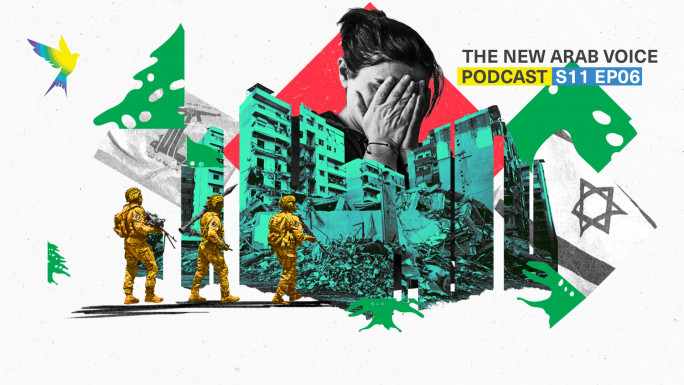
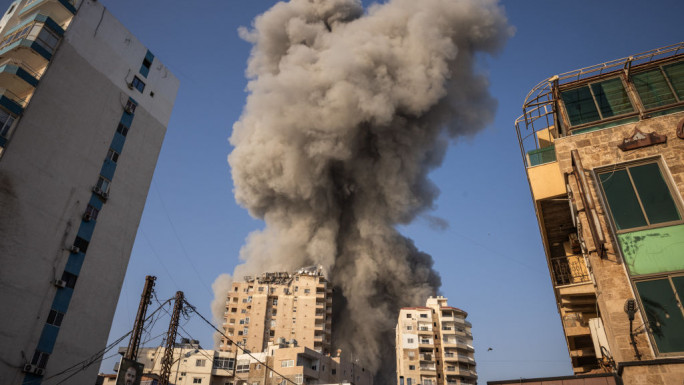
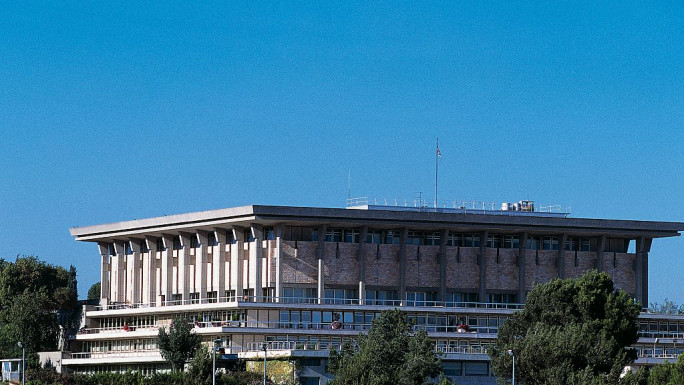
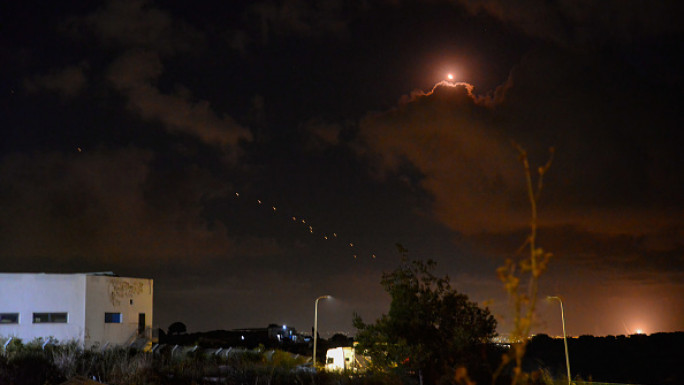
 Follow the Middle East's top stories in English at The New Arab on Google News
Follow the Middle East's top stories in English at The New Arab on Google News

